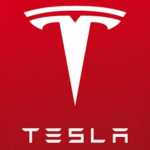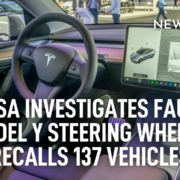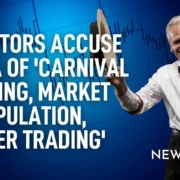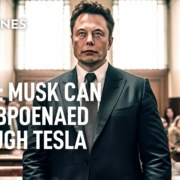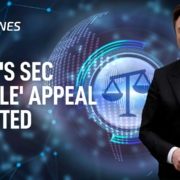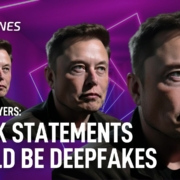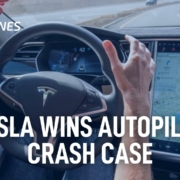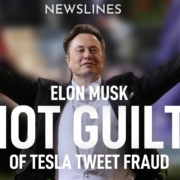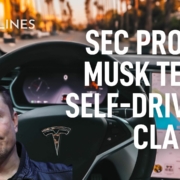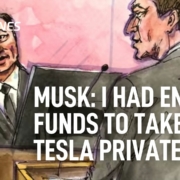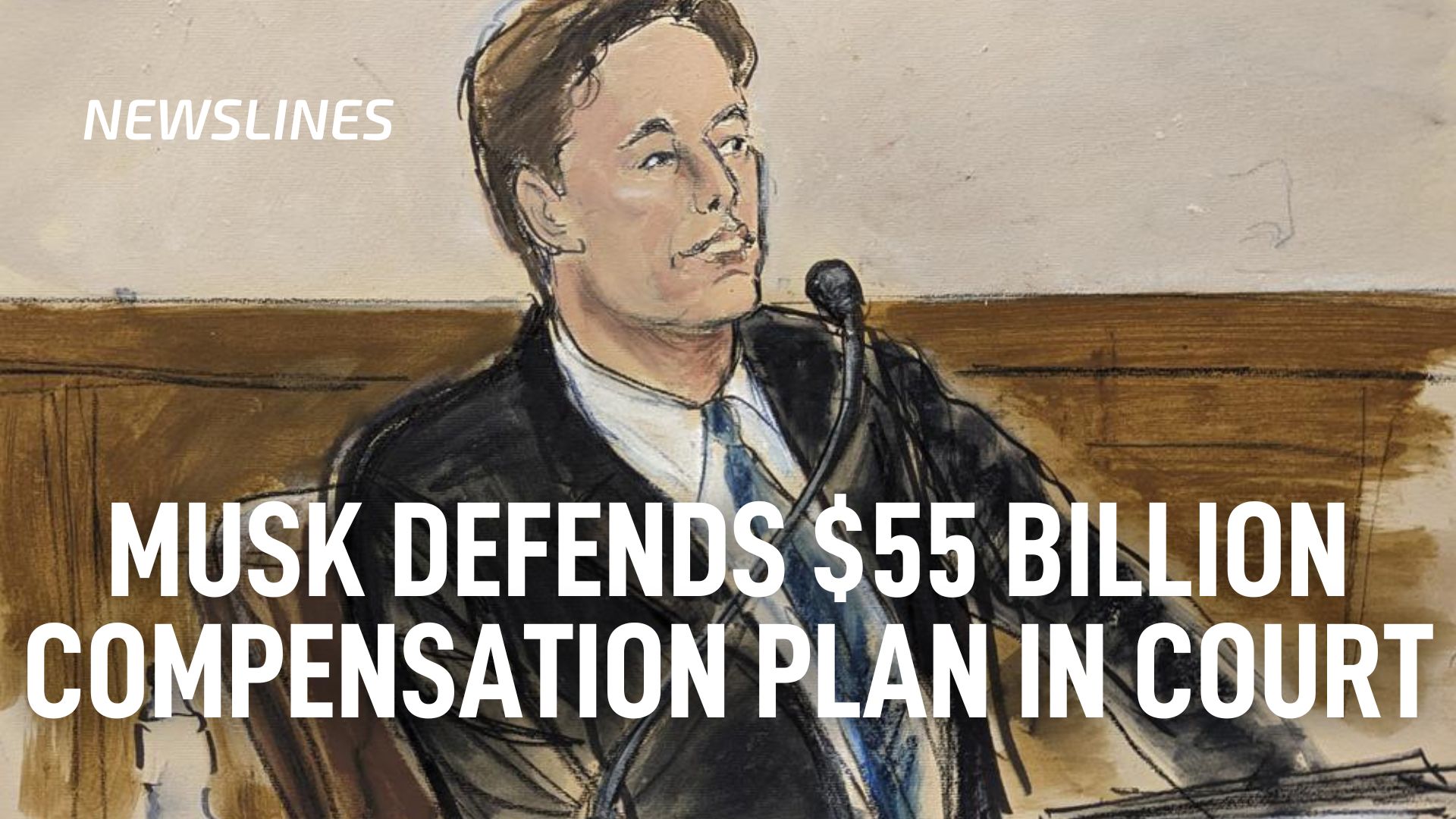NHTSA investigates faulty Model Y steering wheels, recalls 137 vehicles
The National Highway Traffic Safety Administration (NHTSA) investigates Tesla, after two 2023 Model Y owners filed complaints saying that their steering wheels came off while they were driving. Both cars had low mileage, and the NHTSA says they were delivered to the owners without the retaining bolt that attaches the steering wheel to the steering column. Tesla is now voluntarily recalling 137 2022-2023 Model Y vehicles, because the fastening part of the steering wheel may not be as tight as it needs to be. The loose fasteners may separate the steering wheel from the steering column and cause the vehicle to lose steering control. Tesla will provide a free inspection and reinforcement for the recalled vehicles and the its service center will provide services to users as needed. The NHTSA has not yet ordered a recall for the Model Y vehicles, but the administration says the investigation could include about 120,000 vehicles.
Investors accuse Tesla of ‘carnival barking, market manipulation, insider trading’
Investors accuse Musk of insider trading in a class action lawsuit against Tesla, saying the company’s manipulation of Dogecoin cost them billions of dollars. They argue in a Manhattan federal court that Musk used paid online influencers, deliberately undertook ‘publicity stunts’ like his 2021 appearance on NBC’s “Saturday Night Live,” and more, to trade profitably at their expense through several Dogecoin wallets that he or Tesla controls. They say this included the time Musk sold about $124 million of Dogecoin after he replaced Twitter’s blue bird logo with Dogecoin’s Shiba Inu dog logo, leading to a 30% jump in Dogecoin’s price. The accusations are part of a proposed third amended complaint in the lawsuit which began in June 2022. (Tesla sought a dismissal of the second amended complaint, calling it a “fanciful work of fiction,” and said another amendment was unjustified, but US District Judge Alvin Hellerstein said he would “likely” allow the third amended complaint, as the defendants would not likely be prejudiced.) A “deliberate course of carnival barking, market manipulation and insider trading” enabled Musk to defraud investors, promote himself and his companies, the filing said.
Judge: Musk can be subpoenaed through Tesla
A federal judge rules that the U.S. Virgin Islands can serve Musk a subpoena through Tesla, as part of the government’s lawsuit against JPMorgan Chase over its ties to Jeffrey Epstein. The ruling comes after lawyers for the Virgin Islands government said that it had not been able to serve Musk personally with the subpoena, as is the norm. Nor did a Musk lawyer reply to a request to accept the subpoena for his client. The judge authorizes the U.S. Virgin Islands to:
arrange alternative service of its Subpoena to Produce Documents by serving Elon Musk via service upon Tesla Inc.’s registered agent.
Musk’s SEC ‘muzzle’ appeal rejected
The 2nd U.S. Circuit Court of Appeals in Manhattan rejects Musk’s bid to modify or end his 2018 securities fraud settlement with the U.S. Securities and Exchange Commission that requires a Tesla lawyer to approve some of his tweets in advance. (SEC v Musk, 2nd U.S. Circuit Court of Appeals, No. 22-1291.). Musk argued that the SEC exploited his consent decree to conduct bad-faith, harassing investigations that violated his First Amendment free speech rights under the U.S. Constitution. His decree resolved an SEC lawsuit accusing him of defrauding investors with an Aug. 7, 2018, tweet that he had “funding secured” to take his electric car company private. (A San Francisco jury already found Musk not liable for investor losses over the tweet.)
In the appeal, Musk’s lawyers called the pre-approval mandate a “government-imposed muzzle” that amounted to an illegal prior restraint on his speech, but the court says the SEC had opened just two subsequent inquiries into Musk’s tweets, which “plausibly violated” the decree’s terms. The three-judge panel says that the SEC’s inquiries were “limited” and “appropriate,” and “have not made compliance with the consent decree ‘substantially more onerous'” for Musk, who chose to allow screening of his tweets and therefore has no right to revisit the matter “because he has now changed his mind.” Musk lawyer:
We will seek further review and continue to bring attention to the important issue of the government constraint on speech.
Tesla lawyers: Musk’s statements could be deepfakes
Tesla’s lawyers argue in court filings that some of Musk’s statements about the safety of their autopilot features cannot be trusted, because they could be deepfakes. This includes Musk, saying in a speech in 2016:
A Model S and Model X, at this point, can drive autonomously with greater safety than a person right now.
The lawyers say they don’t know whether Musk really made the statements or not:
At first glance it might seem unusual that Tesla could not admit or deny the authenticity of video and audio recordings purportedly contain statements by Mr. Musk…The reality is he, like many public figures, is the subject of many ‘deepfake’ videos and audio recordings that purport to show him saying and doing things he never actually said or did.
Judge Pennypacker says these arguments are “deeply troubling” and tentatively orders Musk to be interviewed under oath for three hours about whether he made the statements:
Their position is that because Mr. Musk is famous and might be more of a target for deepfakes, his public statements are immune. In other words, Mr. Musk, and others in his position, can simply say whatever they like in the public domain, then hide behind the potential for their recorded statements being a deep fake to avoid taking ownership of what they did actually say and do.
The filings are part of a lawsuit brought against Tesla in 2019, alleging that the autopilot feature was defective, resulting in the death of the car’s owner.
Tesla wins Autopilot crash case
After a three-week trial in the Los Angeles Superior Court, a California jury rules in Tesla’s favor in a lawsuit over a crash involving the company’s partially automated driving software. The jury finds that the company’s Autopilot feature did not fail when plaintiff Justine Hsu’s Model S swerved into a curb while the feature was turned on. The jury also found that the vehicle’s airbag performed safely and Tesla did not intentionally fail to disclose facts. Hsu, who had sought more than $3 million in damages, and was awarded none, broke down in tears outside the courtroom after the jury delivered its verdict. One of her attorneys expressed disappointment with the result. Tesla’s attorney declined to comment.
Musk found not guilty of Tesla tweet fraud
In less than two hours, nine jurors unanimously clear Musk of wrongdoing in a Tesla shareholder class action suit, taken over a tweet in which he said he had “funding secured” to take the electric carmaker private in August 2018. The proposed $72bn (£60bn) buyout never materialised. Sharholders claimed Musk had lied when he tweeted later in the day that “investor support is confirmed”. According to an economist hired by the shareholders, investor losses were calculated as high as $12bn. During the three-week trial, Musk, who took the stand for nearly nine hours, argued he thought he had a verbal commitment from Saudi Arabia’s sovereign wealth fund for the deal.
Musk tweets his thansk to the jurors:
Thank goodness, the wisdom of the people has prevailed!
I am deeply appreciative of the jury’s unanimous finding of innocence in the Tesla 420 take-private case.
— Elon Musk (@elonmusk) February 3, 2023
SEC probes Musk Tesla self-driving claims
US regulators are investigating Elon Musk’s role as part of an ongoing Securities and Exchange Commission probe of the company’s statements about its Autopilot driver-assistance system. SEC officials are weighing whether Musk may have inappropriately made forward-looking statements, although which statements have not been revealed.
An investigation by the agency’s enforcement unit doesn’t always lead to consequences, but can result in lawsuits, fines or other civil penalties for companies and executives.
Musk: I had enough funds to take Tesla private
On his second day of testimony in a court case where he is accused of artificially boosting Tesla’s stock price with a tweet, Musk says that he had sufficient financial backing to take Tesla private. Musk says he believed it was “a done deal” that the Saudi Arabia’s Public Investment Fund would support a possible attempt to take Tesla private at $420 a share, a 20 per cent premium at the time, though he acknowledged there was no contract and that many details had not been worked out.
Musk said the PIF had “many multiples” of what was required to take Tesla private, especially because it was not expected to purchase the entire company, and added that his own shares in SpaceX, his rocket company, would make up for any shortfall.
It’s important for the jury to know that
Musk, said it was “difficult to say” if Tesla shares would rise or fall based on his tweet, because markets can act in “counter-intuitive” ways, but admitted it was more likely it would rise.
I expected that there (would) probably be some increase in the stock price — seems likely. If you say that you’re considering taking a company private or acquiring a company . . . there is going to be some premium . . . In this case, I’m clear about what the premium would be.
Mussk disagreed with the shareholders’ lawyers, who suggested the $420 price was based on a reference to cannabis that his girlfriend at the time found funny, saying he was applying a 20 per cent premium to the stock, then rounding up slightly.
There is some karma around 420, although I’d question (whether it) is good or bad karma, at this point
Musk defends $55 billion compensation plan in court
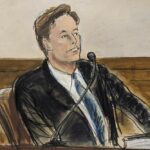 Musk defends his $55 billion pay award in a Delaware court, in a suit brought by Gregory Vallo, a Tesla shareholder. The plaintiff alleges that the compensation package, which called for Musk to reap billions if Tesla hit certain market capitalization and operational milestones, was approved by Tesla board members who had conflicts interest due to personal and professional ties to Musk.
Musk defends his $55 billion pay award in a Delaware court, in a suit brought by Gregory Vallo, a Tesla shareholder. The plaintiff alleges that the compensation package, which called for Musk to reap billions if Tesla hit certain market capitalization and operational milestones, was approved by Tesla board members who had conflicts interest due to personal and professional ties to Musk.
Musk would receive the full benefit of the pay plan, $55.8 billion, only if Tesla hit a market capitalization of $650 billion and unprecedented revenue and earnings within a decade. To date, Tesla, under Musk’s management, has achieved all 12 of the market capitalization milestones and 11 operational milestones, providing Musk over $52.4 billion in stock option gains
Musk says he did not dicate the terms of the package, or attend any meetings at which the plan was discussed by the board, its compensation committee, or a working group that helped develop it.
I was entirely focused on the execution of the company,
Varallo also questioned Musk about how he splits his time among Tesla and his other companies. Musk said he never intended to be CEO of Tesla, and that he didn’t want to be chief executive of any other companies either, preferring to see himself as an engineer instead.
The suit also alleges the shareholder vote approving the compensation plan was based on a misleading proxy statement.
Tesla board investigates Musk’s glass house purchases
Tesla’s board is investigating Musk for possible misuse of company resources in a project to build himself a mansion near the company’s Texas headquarters. The project involves a glass-walled building near Tesla’s Gigafactory in Austin, of which some renderings apparently show a residential area with bedrooms, bathrooms and a kitchen next to a body of water, with the factory in the background. The board’s probe comes after Tesla’s finance and internal audit teams became aware of an order placed by a Musk advisor (also being probed) for millions of dollars worth of specialized glass, and is focusing on whether executives in Musk’s inner circle used the company’s clout to obtain the glass for a personal project of Musk’s while a global supply chain crisis made the glass more difficult to obtain normally.
